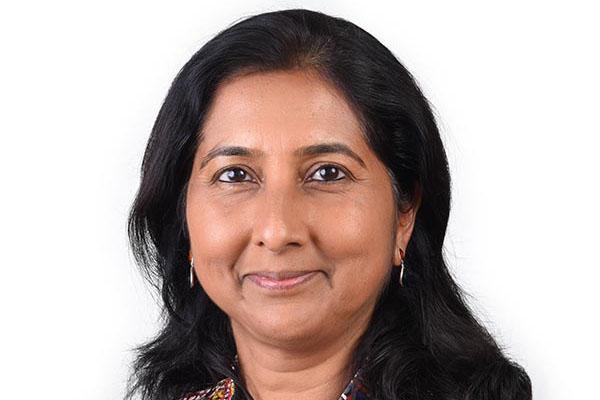PhD in Mathematics
The doctoral program in the Department of Mathematics offers the personalized attention of a small department while also providing a wide range of faculty who offer expertise to support dissertation research. The graduate student environment in the department is collaborative and rigorous, with many opportunities for mentorship, peer interaction and interdisciplinary opportunities across and outside the university.
PhD graduates go on to work as policy makers, consultants, data analysts, professors, researchers at internationally renowned institutions and much more.
Program Update
The PhD in Mathematics program will only be reviewing applications for unfunded admission. Applicants who applied for funded admission will receive a refund of the application fee.
Prospective Students
Teaching Assistantships and Funding
Full-time PhD students in mathematics are supported primarily through teaching assistantship (TA) positions. Students making acceptable progress in the PhD program are normally funded for at least five (and sometimes six) years.
While teaching assistant (TA) positions are usually offered to PhD students, master’s and part-time students are also invited to apply through the Office of Graduate Student Assistantships and Fellowships website.
- TA Financial Package Components
- A stipend in the form of a GW fellowship
- Tuition credits (up to nine credit hours per semester)
- A salary in exchange for teaching work
- How to Apply
PhD students apply for teaching assistantships as part of the general GW application process. Applications to the doctoral program completed before January 15 will receive full consideration for TA positions.
- Duties
The duties of TAs may include teaching a course, conducting recitations, assisting in a computer lab, holding office hours, grading homework and proctoring and grading exams. Such duties typically take about 15 hours per week.
The graduate committee, in consultation with students' advisors, makes recommendations to CCAS for renewal of support; these recommendations are subject to the approval of the CCAS Associate Dean for Graduate Studies. Students making good progress toward earning a PhD and performing their teaching duties well usually receive at least five years of support. Requests for a sixth year of funding can be made when there is good evidence that the student is likely to complete the degree in the sixth year.
- Orientation for New TAs
Several activities for new graduate students are held the week before the fall semester begins:
- a Graduate Teaching Assistant Program (GTAP) orientation organized by the GW Office of Graduate Student Assistantships and Fellowships;
- an English test and interview for international students; and
- an orientation for mathematics graduate students, organized by the Department of Mathematics.
At the GTAP orientation, each new TA gives a five-minute sample presentation to a small group of peers and is evaluated for effective communication. All students, especially international students, are encouraged to discuss their presentation in advance with their academic advisor.
"I owe my success to my beginning days in the U.S. — to all the wonderful professors at GW. If not for their constant support, I would not have completed my PhD and all this would be moot!"
Sita Ramamurti
PhD '95, 2020 Leo Schubert Teaching Award
Course Requirements
The following requirements must be fulfilled:
The general requirements stated under Columbian College of Arts and Sciences, Graduate Programs.
The requirements for the Doctor of Philosophy Program.
72 credits, including at least 45 credits of coursework, and at least 6 credits of dissertation research.
Pre-candidacy
During the pre-candidacy phase, students must complete a minimum of 45, but no more than 54, credits of coursework. This coursework is to be undertaken in preparation for the specialty examination.
Students wishing to take courses outside the department must petition and obtain the approval of the graduate committee. The committee may limit the number of such courses that students take.
Subject to the approval of the graduate committee (requested via petition), students may take up to 12 credits of courses offered by other institutions in the Consortium of Universities of the Washington Metropolitan Area.
Subject to the approval of the graduate committee (requested via petition) and the agreement of the instructor, students may take up to 12 credits from the following upper-level undergraduate courses for graduate credit, provided that additional graduate-level coursework is completed in these classes.
| Code | Title | Credits |
|---|---|---|
| MATH 3613 | Introduction to Combinatorics | |
| MATH 3632 | Introduction to Graph Theory | |
| MATH 3710 | Introduction to Mathematical Logic | |
| MATH 3720 | Axiomatic Set Theory | |
| MATH 3730 | Computability Theory | |
| MATH 3740 | Computational Complexity | |
| MATH 3848 | Differential Geometry | |
| MATH 4239 | Real Analysis I | |
| MATH 4240 | Real Analysis II | |
| MATH 4981 | Seminar: Topics in Mathematics |
Candidacy assessment process
To advance to candidacy, students must successfully complete at least 45 credits of coursework, a qualifying examination, and a specialty examination.
The qualifying examination covers four subject areas—algebra, analysis, applied mathematics, and topology—and is offered twice each year, before the start of the fall and spring semesters. The exam in each subject area is worth 30 points and may be taken no more than twice. To pass the qualifying examination, students must achieve a total of at least 50 points across three subject areas by the start of their fourth semester in the program.
The specialty examination is an oral examination in the student's intended research area. It is conducted by a committee of three faculty members, including the prospective director of the student's dissertation. Students are required to pass the specialty examination by the time they have completed 54 credits of coursework (by the end of the sixth semester, for full-time students).
Post-candidacy
Once they have advanced to candidacy, students must complete the remaining credits required for the Ph.D., including at least 6 credits of MATH 8999 Dissertation Research; their dissertation; and the successful defense of their dissertation in a final oral examination.



